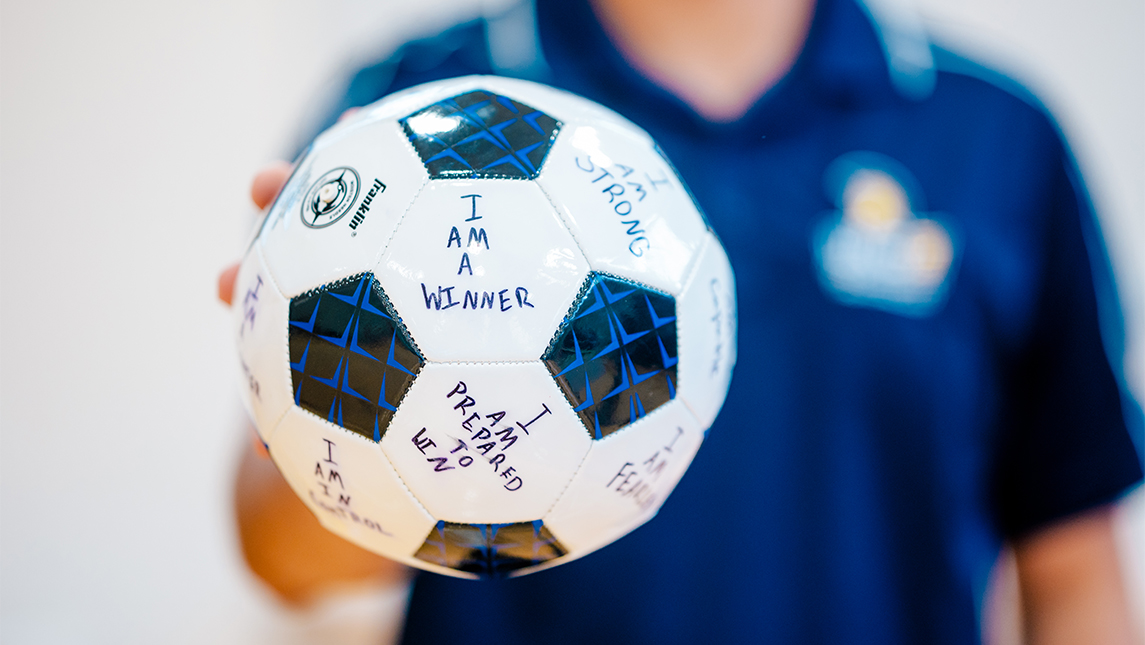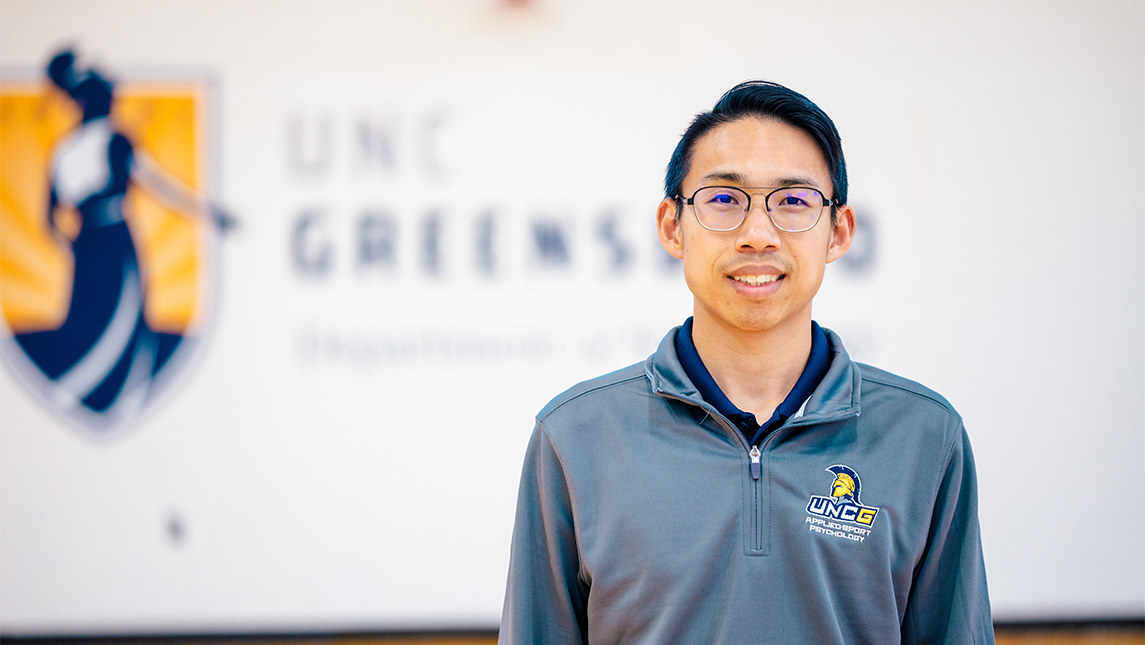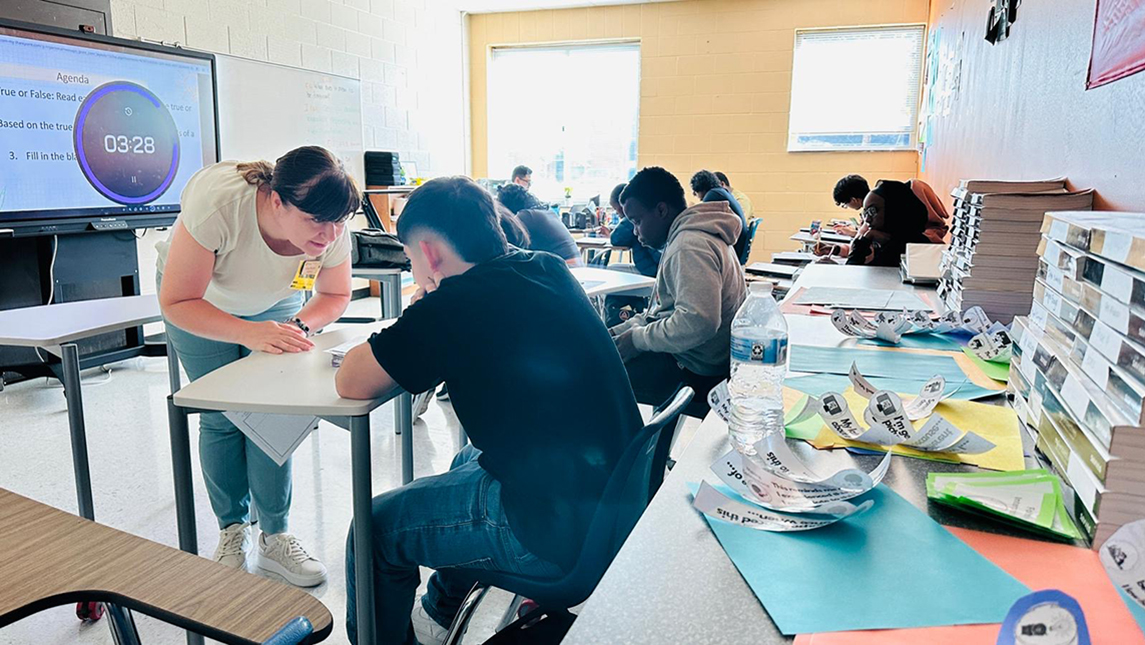In high school, Alan Chu was on the path to becoming a professional table tennis player when his motivation started to slip. He lost close matches at a junior national team trial. He was feeling the pressure of juggling academics with five sports.
Chu decided to give the sport one last shot by joining the City University of Hong Kong’s table tennis team. The experience changed his relationship with the game.
“To be honest, I thought I’d play for one or two months,” Chu says. “But then, I had a really supportive coach and team that kept me going.” He went on to captain the championship winning team.
Losing and rediscovering his motivation sparked Chu’s interest in helping other athletes – both through hands-on work and scholarly discovery. Now, he’s an associate professor of applied sports psychology in UNCG’s Department of Kinesiology with research centered on better understanding athlete motivation.
“After my own experience with sports, I became really curious about how different people in the environment impact athletes’ motivation,” he says. “I’m interested in the dynamics within the team and how a coach impacts the player.”
Identity matters, and not just the athlete’s
Growing up in Hong Kong, Chu says he had no problem fitting in. That changed when he moved to a new country.
“I came to the U.S. speaking English as a third language and not playing football or baseball. That journey gave me a different lens and a sense of what it’s like to be underrepresented as an ethnic minority in sport,” he says. “Now, I want to look at those layers and unpeel them as much as I can.”
Chu is researching how an athlete’s background may relate to their experience of their coach’s support – or lack thereof. In a recent study, he compared how Hispanic, Black, and White high school and college athletes perceived their sporting environment.
“There have been quite a few studies on this topic looking at gender and cultural differences from a qualitative standpoint, but they have not looked at the combination of these factors using a quantitative approach, which is crucial,” says Chu.
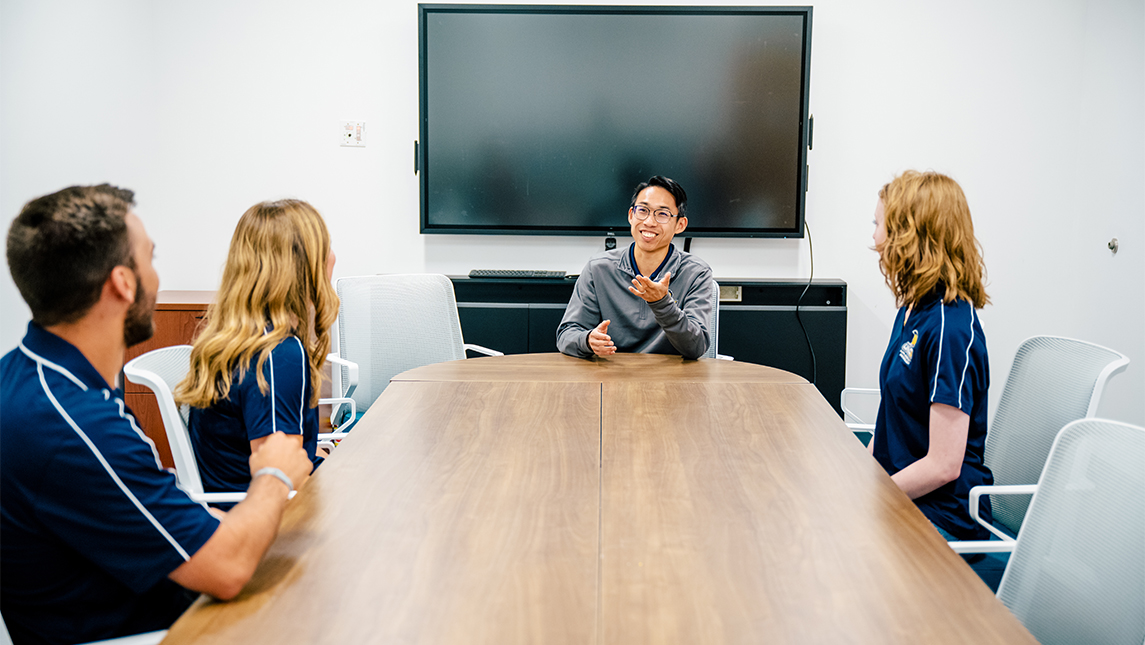
His findings contained some surprises: they showed that while Black males had the most negative perceptions of their coaching climate and satisfaction with their psychological needs, Black females had the most positive perceptions.
“When individuals have more than one marginalized identity, they tend to feel isolated and less supported,” Chu says “So, it was surprising that Black females had the most positive perceptions of their sports environments, which were mostly male-dominated spaces in this study.”
In future studies, Chu plans to explore how athletes from more backgrounds, including Asian, Indigenous and Native American athletes, perceive their coaches. He also hopes to conduct studies with larger samples and different types of colleges.
Moving forward, Chu suggests coaches take a nuanced and personalized approach to ensure athletes from all backgrounds feel supported in sports.
“Even though your coaching approach may work for 80 percent of your athletes, it doesn’t mean you should just stick with that approach,” he said. “There may be some athletes that need a different method, and you have to adapt.”
It’s not only coaches who affect the athlete.
Chu has also recently investigated the roles parents may play. He found that athletes perceived parents who had previously played sports as being more supportive in fostering their personal growth – and less focused on winning – compared to athletes whose parent didn’t play sports.
Winning the mind game
While Chu’s findings suggest many people play a key role in athletes’ motivations, he’s also curious about how an athlete’s own internal monologue can shape their motivation and performance – a topic Chu knows all too well.
“I tried out for the junior national team, and that was probably one of the most difficult moments in my sports journey,” he says. “I actually had a pretty good shot at it, but I got nervous and made mistakes. I was upset with myself, and of course, ended up losing more right after.”
Chu now studies how mindfulness and self-compassion can ground an athlete. When athletes make inevitable mistakes, how can they cultivate their own positive internal monologue and compassion to buoy them?
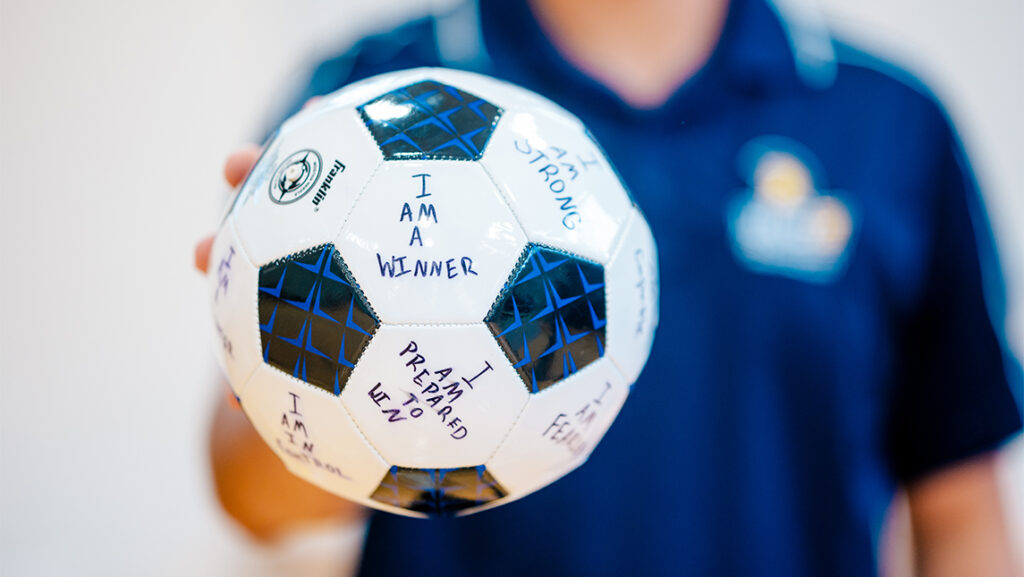
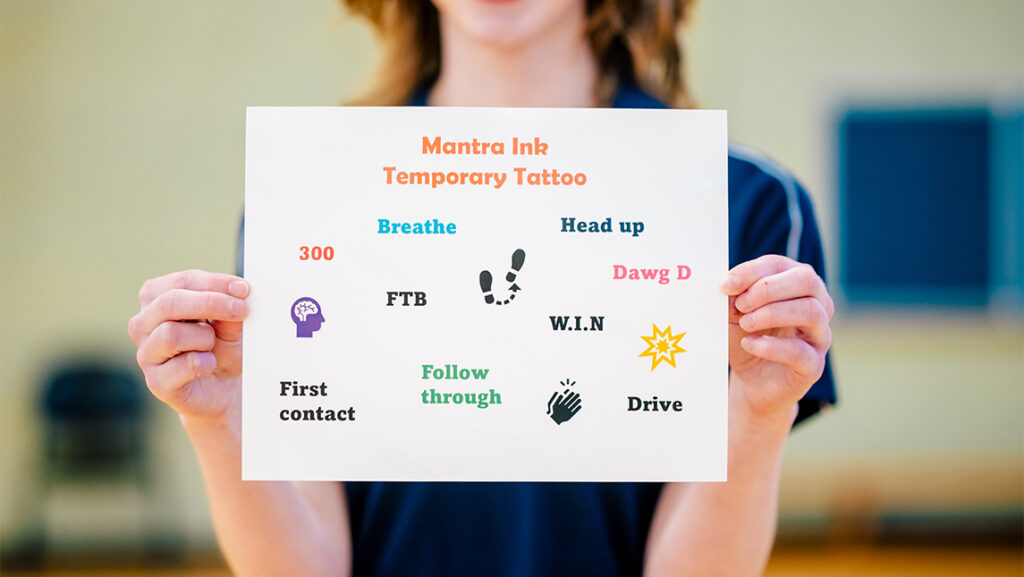
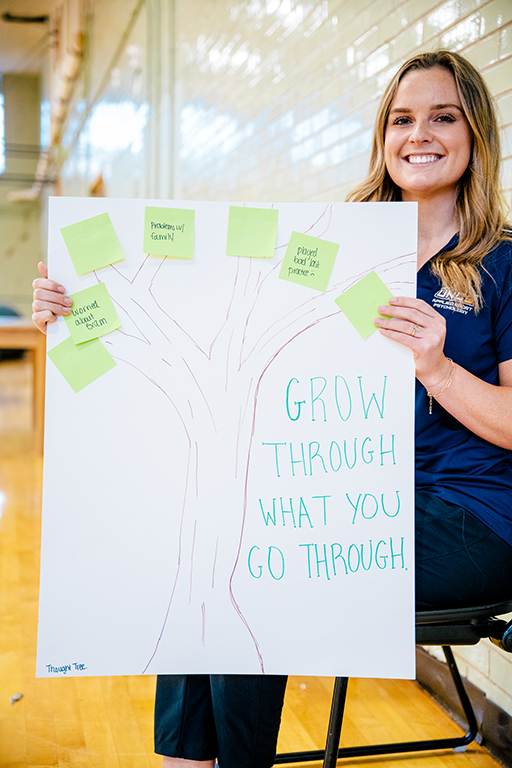
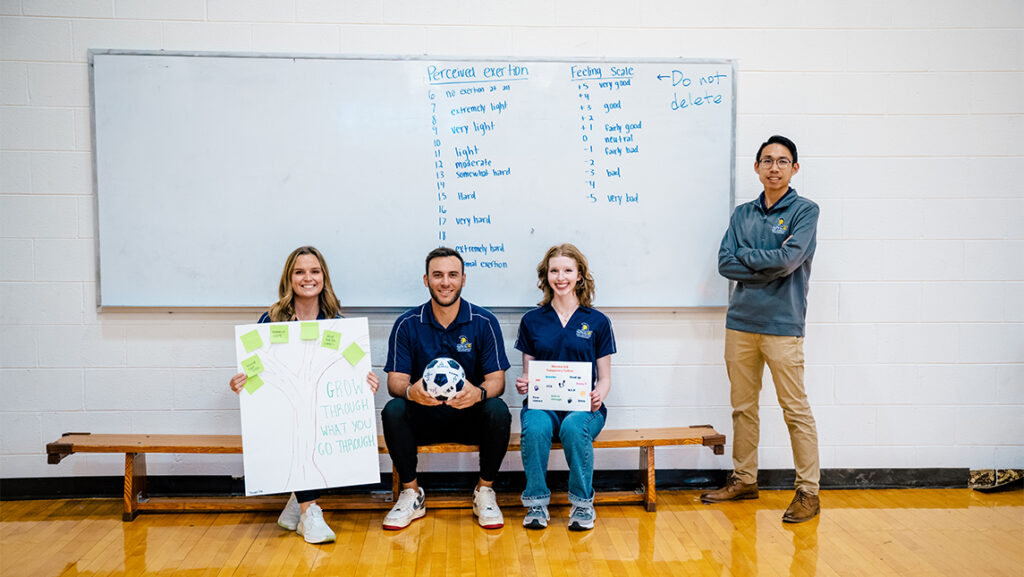
From research to the real world
As a Certified Mental Performance Consultant Chu puts his research – from mindfulness to fostering a supportive environment – into action. He trains athletes and shares evidence-based strategies.
He also teaches the next generation of athlete wellness professionals in UNCG classrooms. There, he finds new research leads and inspiration.
“The more I’m in this field, the more I’m stuck in my own way of doing things,” Chu says. “But then, students give me some creative tools and make it fun.”
Where his students land after UNCG also expands his understanding of the impact of his field. He says many of them begin working in the military after graduating: an environment where applied sport and performance psychology can make a big difference.
“Training helps athletes to be more confident and focused. In the military, that’s even more important because you have a smaller margin of error,” he says.
These skills can make a difference in everyday environments, too. He says undergraduates, whom he teaches in his Psychological Skills for Optimal Performance course, may even find it helpful in their activities off the court.
“These undergrads say that learning about sport psychology helps them with their anxiety about tests, presentations, and experiences in their daily life.”
Chu also applies his research to his own life every now and then while playing table tennis – now a hobby instead of a career.
“My mental game is so strong now,” he says with a laugh.
Story by Rachel Damiani
Photography by Sean Norona, University Communications
